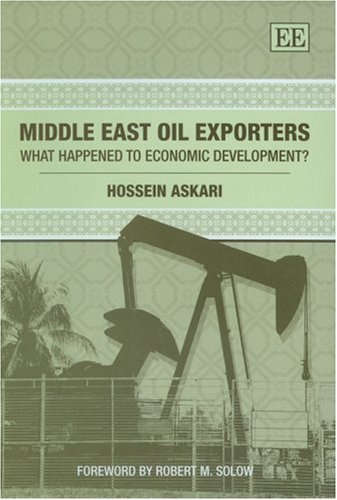

Most ebook files are in PDF format, so you can easily read them using various software such as Foxit Reader or directly on the Google Chrome browser.
Some ebook files are released by publishers in other formats such as .awz, .mobi, .epub, .fb2, etc. You may need to install specific software to read these formats on mobile/PC, such as Calibre.
Please read the tutorial at this link: https://ebookbell.com/faq
We offer FREE conversion to the popular formats you request; however, this may take some time. Therefore, right after payment, please email us, and we will try to provide the service as quickly as possible.
For some exceptional file formats or broken links (if any), please refrain from opening any disputes. Instead, email us first, and we will try to assist within a maximum of 6 hours.
EbookBell Team

4.4
22 reviewsHossein Askari argues here that economic and social failure in the oil-exporting countries of the Middle East is a result of much more than simply shortcomings in economic policies. He analyzes religion, corruption, instability, wars and foreign interference as factors affecting the region and offers solutions that incorporate Islamic teachings, regional peace efforts, market-oriented economic policies, sound institutions and unselfish policy support from the West.
Middle East Oil Exporters presents a detailed picture of the economic structure and a critical survey of the recent economic performance of the Middle East. The focus is especially on the large oil-exporting nations, although the smaller producers are represented as well. The author illustrates how oil has become a crutch to avoid reforms, destroying the work ethic of the region, fuelling corruption and poisoning the social and cultural fabric of society to keep unpopular governments in power. In addition, he provides a view of the social, economic, and political implications of Islamic doctrine. In this context he examines the institutions of governance and determines that they have performed poorly, often in blatant violation of Islamic principles. This in-depth analysis is accompanied by a comprehensive prescription for a turnaround in the Middle East.
Hossein Askari's unique and insightful critique is essential reading for students and scholars of the Middle East, as well as policymakers involved in the region. Executives of financial institutions and private corporations will also want to understand the region for their energy needs and as a market for their products and services.